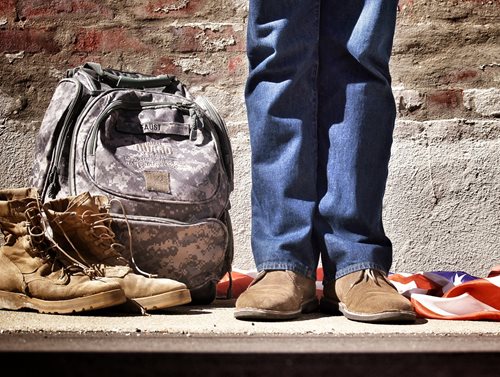
Veterans Day is the one day each year where our nation recognizes the honor, strength and courage of those who have served. NAMI expresses our genuine gratitude to all our veterans for their sacrifice and commitment to a greater mission that always puts country first. We stand shoulder-to-shoulder with the veteran community, not only in appreciation, but to bring awareness to the mental health challenges many face upon returning from war.
We frequently discuss post-traumatic stress disorder (PTSD), traumatic brain injury (TBI), anxiety and depression. But veterans face other unique challenges that do not fit within the scope of the DSM-5—the manual clinicians use to diagnose and treat individuals with mental health conditions.
Dr. Jonathan Shay, a psychiatrist specializing in the treatment of veterans who experience severe combat trauma, thought the clinical definition of PTSD limits what some veterans have experienced. To fill this gap in understanding, he invented the term “moral injury.” Dr. Shay explains that with moral injury, “there is a betrayal of what’s right by someone who holds legitimate authority in a high-stakes situation.”
The U.S. Department of Veterans Affairs (VA) has adopted the idea of moral injury in the context of war. The National Center for PTSD at the VA realizes moral injuries often result from “direct participation in acts of combat, such as killing or harming others, or indirect acts, such as witnessing death or dying, failing to prevent immoral acts of others, or giving or receiving orders that are perceived gross moral violations.”
These moral violations often result in guilt, shame, anxiety and anger, and can leave service members scarred from their war-time experiences.
Moral injury in the context of war has gained traction as a subject of study in recent years. David Wood, a Pulitzer Prize-winning journalist who served as an embedded reporter with multiple U.S. military units from Somalia to Iraq and Afghanistan, has recently written a book on the topic. In What Have We Done: The Moral Injury of Our Longest Wars, Wood shares that even though promising developments have been made in understanding moral injury including new treatment therapies, he believes that “moral injury is the enduring if hidden signature wound of our most recent, and longest, wars.”
One of the breakthrough VA pilot studies for the treatment of moral injury that shows promise is an augmented version of evidence-based therapies already utilized in the treatment of PTSD. A six-session module that contains four elements including education, identification of the root cause, self-forgiveness and a component of forgiveness from others.
This Veterans Day, NAMI calls on all Americans to come together around supporting our service men and women and commit to advocating for continued research into the best mental health treatments for our veterans. It’s time for us to serve the men and women who have served our country.

